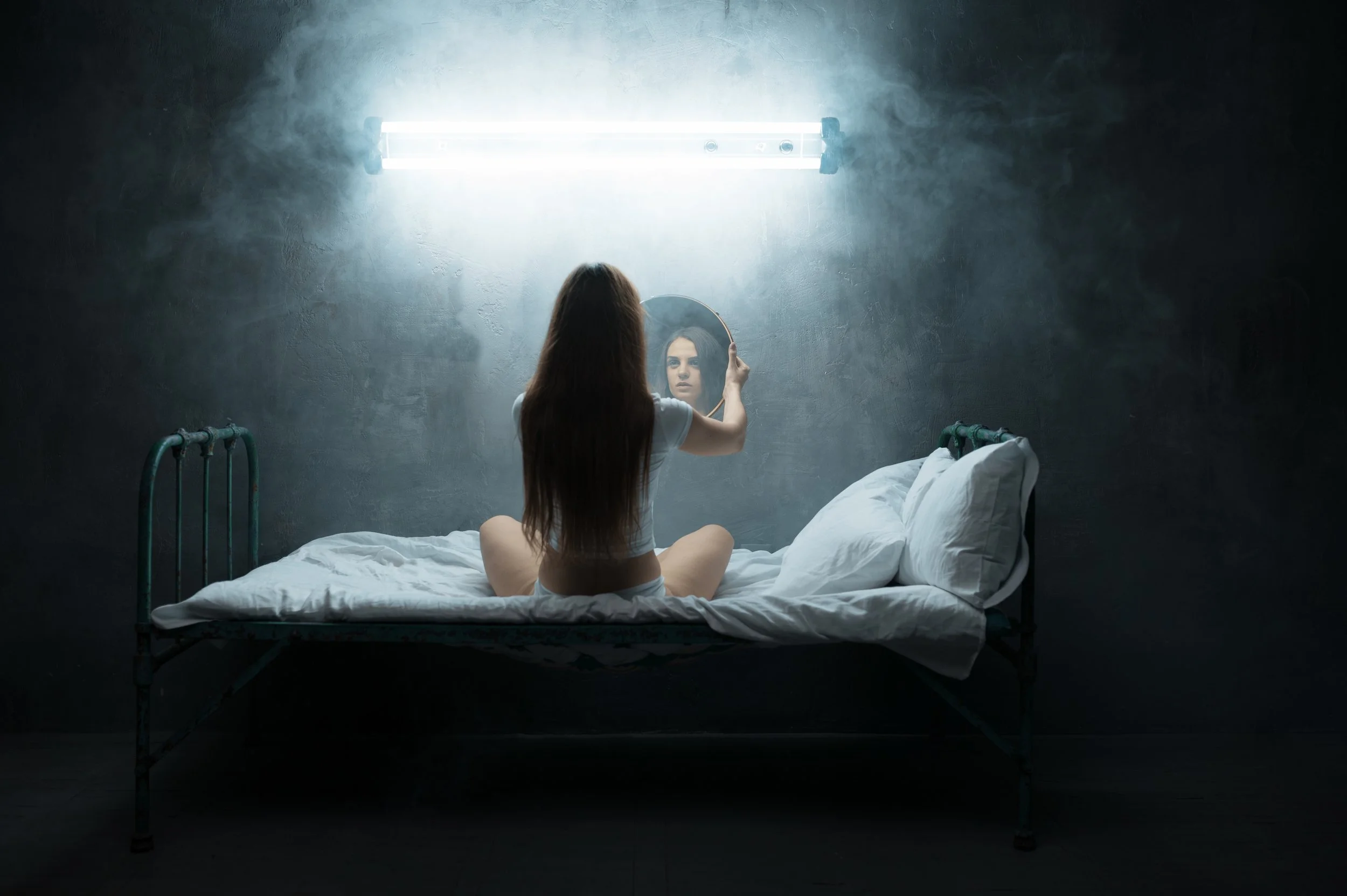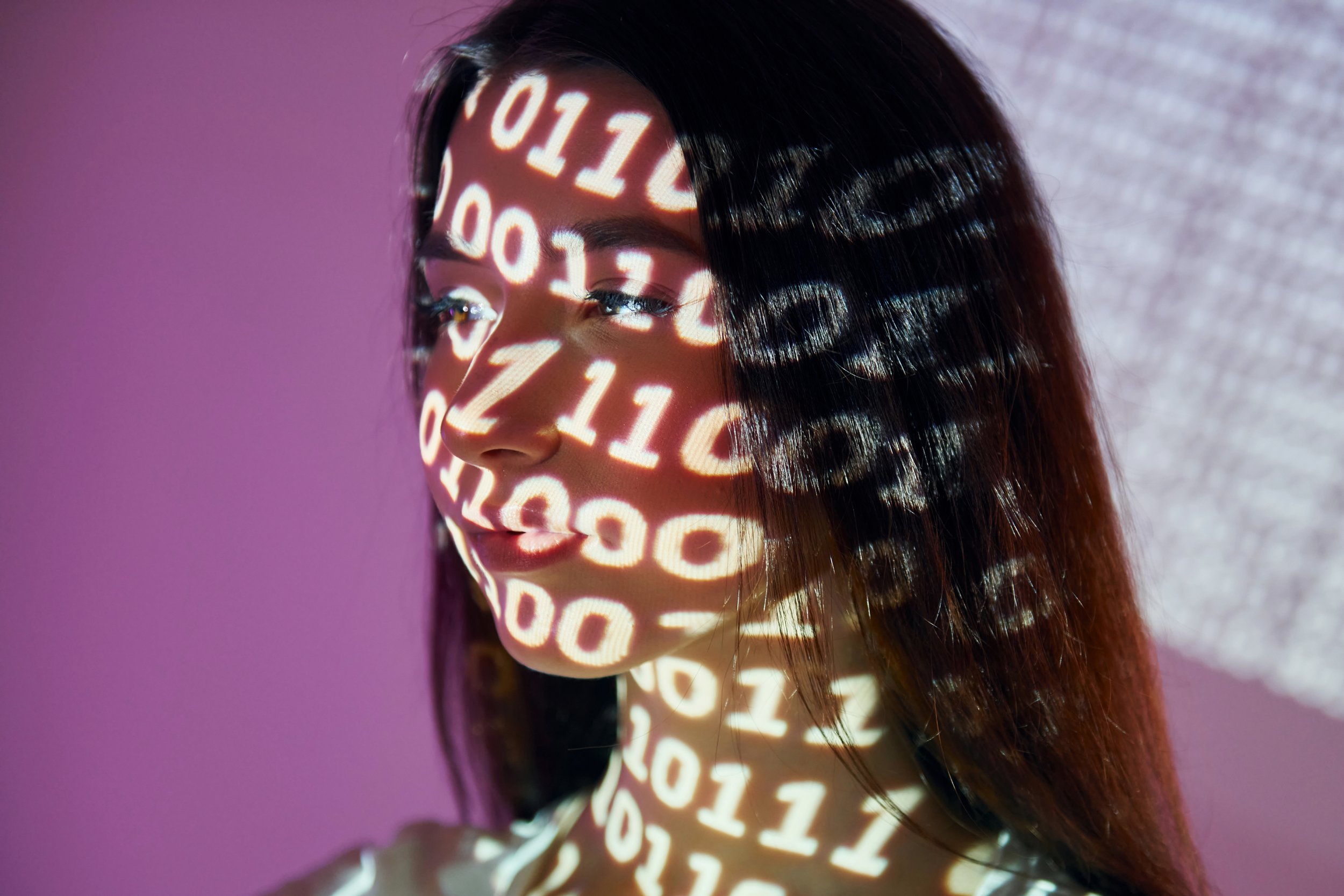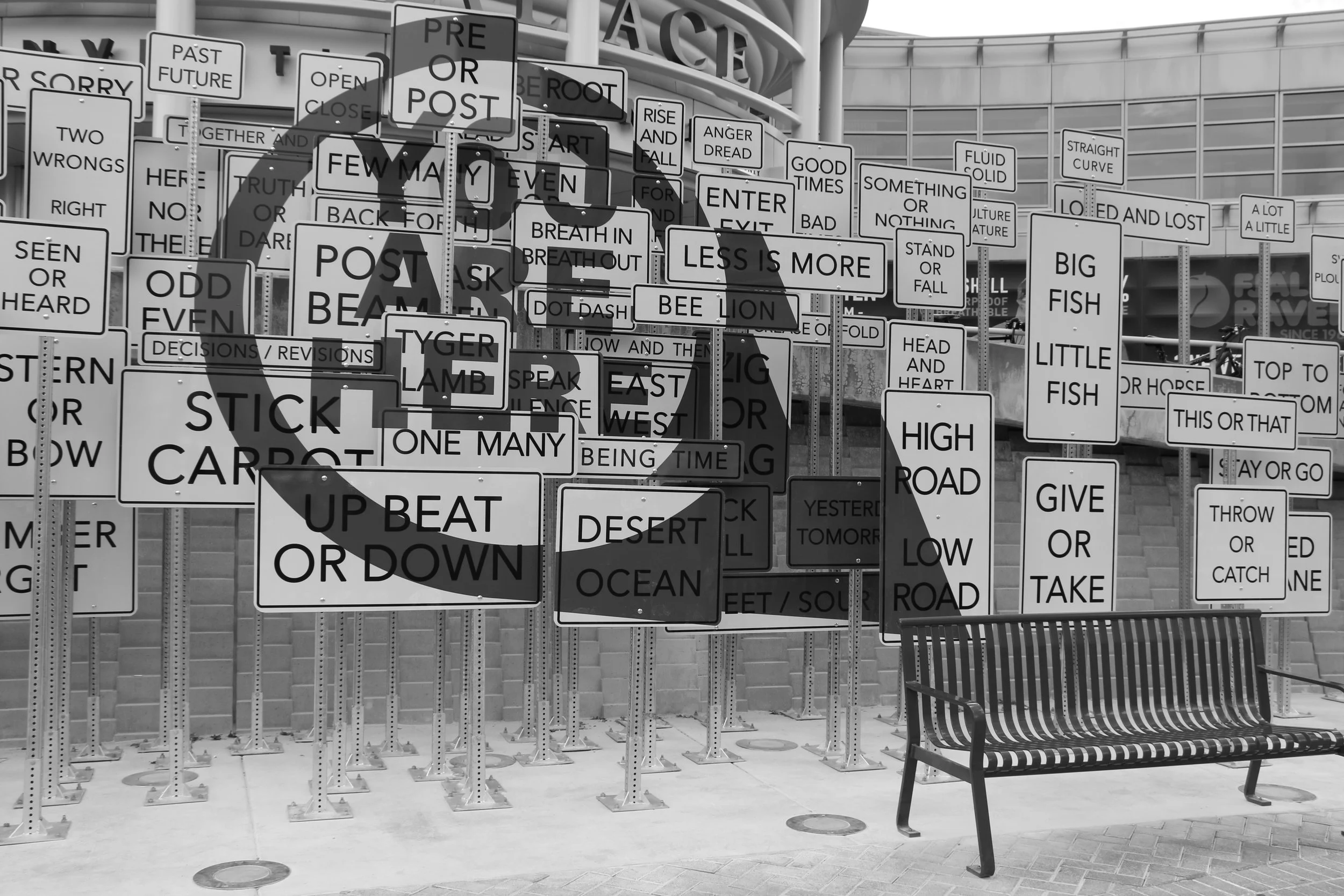What You See Isn't Who You Are (It's Where You're Standing)
7:23 a.m.: I'm ugly-crying into cereal over a rejection email. 1:04 p.m.: A dressing room-sized tag says "no," my brain hears "not enough." 9:46 p.m.: My Explore page serves an AI "model" with math-class symmetry, and suddenly, my real face feels like a bug report.
Same me. Three angles. Three stories. None of them told the whole truth.
The first time I understood the difference between perception and perspective, I was standing in my kitchen during that 2 a.m. cereal crisis. It wasn't about the cereal. It was about the email I'd gotten that afternoon, a rejection that felt like someone had taken my entire sense of self and fed it through a paper shredder.
So there I was, drowning my sorrows in Lucky Charms and self-pity, when my neighbor's motion sensor light clicked on outside my window. Suddenly, my kitchen was illuminated differently. The harsh overhead bulb that had been casting everything in stark, unforgiving light was joined by this softer glow from outside.
I looked up from my cereal destruction and saw my reflection in the window, not the bathroom mirror version of myself that whispers lies about inadequacy, but something else entirely. Same face, same pajamas, same puffy eyes from crying over a work email like it was the end of the world. But in that mixed lighting, I looked human. Fragile, maybe, but real. Like someone who was having a hard moment, not someone who was fundamentally broken.
That's when it hit me: I hadn't changed in those thirty seconds. My worth hadn't fluctuated. My capabilities hadn't shifted. The only thing that had changed was where I was standing in relation to the light.
The Stories We Tell Ourselves in the Dark
Here's what I've learned about perception: it's a liar with excellent credentials.
Perception is that voice that takes one data point, a rejection email, a sideways glance from a stranger, a photo where your smile looks forced, and weaves it into an entire narrative about who you are and what you're worth. It's the screenwriter of your inner monologue, and unfortunately, it seems to prefer tragic dramas to romantic comedies.
But perspective? Perspective is what happens when you step back far enough to see the whole story.
That rejection email? It came on a Tuesday when the recruiter was probably drowning in submissions, and my piece landed in their inbox right after they'd spilled coffee on their laptop and gotten stuck in traffic.
It had nothing to do with my worth and everything to do with timing, fit, and the simple fact that not every door is meant to open for you; some are just meant to redirect you toward the right one.
The difference between perception and perspective is the difference between thinking you're the villain in everyone else's story and realizing you're the protagonist of your own.
The Physics of Feeling
We talk about "changing your perspective" as if it were some mystical, impossible thing that requires meditation retreats and life coaching. But most of the time, it's as simple as literally changing where you're standing.
When photographers want to make someone look powerful, they shoot from below. When they want vulnerability, they shoot from above. When they want intimacy, they get close. When they want context, they step back; the same person, same moment, but a completely different story depending on the angle.
Your life works the same way.
Standing too close to a problem makes it look insurmountable. Step back, and you might see it's actually just Tuesday being Tuesday. Standing too close to your flaws makes them look like defining characteristics. Step back, and you might see they're just part of being beautifully, imperfectly human.
The Three-Foot Rule: When something feels overwhelming, try describing it as if you're standing three feet away from it. "I'm watching myself have a hard day" instead of "I'm having the worst day ever." "I'm observing myself feel rejected" instead of "I am rejection incarnate." Distance creates space for compassion.
When a Number Pretends to Know You
A size tag is a location, not a verdict. Stand in a dressing room: you'll see "failure." Stand at a tailor's: you'll see partnership. Stand in your bedroom with shoes you actually own: you'll see context.
The number on that tag isn't measuring your worth; it's measuring one brand's interpretation of one measurement at one moment in manufacturing history. It knows nothing about how you move through the world, how you light up when you laugh, or how perfectly that fabric falls when you're living your actual life.
Buy for shoulders and hips, tailor the rest. Replace "Does this fit me?" with "Can this be made to fit my life?"
When Your Inner Critic Has Bad Lighting
Your inner critic is basically that friend who only takes photos of you under fluorescent lighting and then wonders why you always look tired.
It specializes in highlighting every flaw, magnifying every mistake, and somehow managing to make your greatest accomplishments look like happy accidents that definitely won't happen again. It's got a PhD in selective attention and a minor in catastrophic thinking.
But here's the thing about critics, even the internal ones: they're usually sitting in the worst seats in the house.
Your inner critic is judging your performance from the back row with a broken view and bad acoustics. It's missing the subtle moments, the genuine connections, the quiet victories that make up the real substance of your life. It's so focused on looking for problems that it misses the plot entirely.
Meanwhile, the people who truly matter, the ones who love, respect, and benefit from your existence, are sitting in the front row with perfect lighting, seeing the whole show.
"The bathroom mirror has opinions. Daylight has perspective."
The Algorithm of Inadequacy
Algorithms aren't mirrors; they're billboards with an agenda. When magazines run campaigns starring poreless, AI-generated "women," you're not seeing beauty, you're seeing a cost-cutting fantasy. If you stand inside that feed long enough, your perception bends until human texture looks like a flaw.
We live in a world designed to make us feel like we're not enough. Social media feeds us everyone else's highlight reels while we're living in our behind-the-scenes moments.
It's like being surrounded by funhouse mirrors that all show slightly different distortions of reality, and then wondering why we can't figure out what we actually look like.
But here's what I've learned: the algorithm of inadequacy only works if you keep feeding it data. Every time you compare your chapter 3 to someone else's chapter 20, you're giving it information to use against you. Every time you measure your worth by external metrics like likes, follows, salary, and relationship status, you're teaching it that you're not the authority on your own value.
The antidote isn't to stop caring what people think. It's about starting to care more about what the right people think, and remembering that the most important person in that category is you.
Changing Your Angle, Changing Your Life
Last month, I was having coffee with a friend who was spiraling about a presentation she had to give. "I'm going to humiliate myself," she said. "Everyone will see that I have no idea what I'm talking about."
I asked her to try something: "Pretend you're giving this presentation to your younger self. What would you want her to know?"
The shift was immediate. Her shoulders relaxed. Her voice changed. Suddenly, instead of focusing on all the ways she might fail, she was thinking about all the wisdom she had to offer. Same presentation, same material, same audience, but she'd moved from standing in the shadows of her insecurities to standing in the light of her purpose.
That's what changing your angle does. It doesn't change the facts, but it changes the story those facts tell.
The Courage to Step Into Better Light
The most radical thing you can do is believe that you deserve to see yourself clearly.
Not the version of yourself that's been filtered through other people's opinions, societal expectations, or your own worst fears. The real you is complex, evolving, and worthy of compassion, even when you're not perfect, especially when you're not perfect.
This doesn't mean ignoring areas where you want to grow or pretending you don't have work to do. It means doing that work from a place of love instead of self-hatred. It means recognizing that you can want to improve and still be fundamentally okay right now.
It means understanding that what you see when you're standing in harsh light, whether that's your bathroom at 7 a.m. or your mind at 3 a.m., isn't the whole truth. It's just one angle, one moment, one type of illumination.
The Light You've Been Looking For
Here's what I want you to remember: you are not the worst thing that's ever happened to you. You're not the most embarrassing thing you've ever done. You're not the harshest judgment you've ever made about yourself.
You're the person who has survived 100% of your worst days so far. You're the one who has figured out how to keep going when everything felt impossible. You're the one who has learned to love people despite their flaws and who deserves that same grace extended to yourself.
You're the main character in a story that's still being written, and the most beautiful chapters might be the ones you haven't reached yet.
The next time you catch yourself standing in harsh light, literal or metaphorical, remember that you have the power to move. Not to become someone else, not to fix everything that feels broken, but to find an angle where you can see yourself with the same kindness you'd show a dear friend.
Move your feet, change your feelings. Change your angle, change your life.
Step to Better Ground (30s):
Notice where you're standing (physically and emotionally)
Ask: "What would this look like from love?"
Take one step toward better light
Remember: You're not broken, just human
Breathe like you believe it
The truth is, I still ugly-cry over cereal sometimes. I still get rejection emails that sting. I still catch myself in an unflattering light and have moments of wondering if I'm fundamentally flawed.
But now I know something I didn't know before: those moments aren't the whole story. They're where I am standing in that particular instant. And I have the power to move.
What you see isn't who you are, it's where you're standing. And you, my dear reader, deserve to stand in the light.
By Sypharany.








